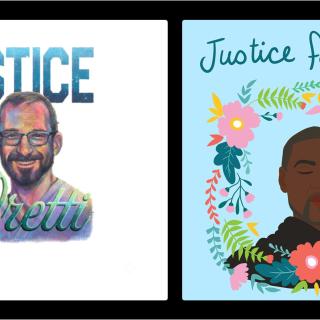On the heels of the recent report that we’ll all be dead from climate change in a few decades, several friends have asked me – how do libertarians feel about climate change? As with anything involving libertarian philosophy, the answer isn’t exactly simple and requires some further explanation.
Most libertarians live by the creed that our political party professes – don’t hurt anybody and don’t take their stuff. Arguably, harming the environment in any way would fall under that realm of violating our principles, because the environment is something that we all live in.
If you take part in poisoning an area’s groundwater or air, you’re effectively hurting several people and certainly taking their stuff, namely their ability to drink water and breath safely. Environmental laws are something that libertarians, in theory, would be in favor of since they stop senseless abuses by the rich and powerful – and more importantly, their attempts to hurt less powerful people’s bodies and properties.
However, libertarians also understand that, like many laws, environmental regulations don’t mean the bad behavior always stops. Prohibition in several forms has been proven to not work many times over – from the outlawing of alcohol in the 1920s to our modern-day prohibition of drugs. In fact, everything from gun laws to seat belt laws don’t make people stop doing stupid things, it just makes them victims of the government when they do. Furthermore, when there are actual victims (and libertarians are certainly against victimless crimes when it comes to drug laws, etc.) there must be consequences – so where do the lines eventually get drawn when it comes to harming people and taking their stuff through environmental means?
When I lived in the Bahamas after college (where I grew white-man dreadlocks and for that I’m still sorry.) we lived on a rural island called Andros that was known for its natural resources. The island itself was an aquifer that provided up to six million gallons of fresh water to the casinos and hotels in Nassau a day. There were also thousands of fish swimming in the shallow parts of the ocean off the shores and fresh conchs if you could find them during low tide. Knowing their natural resources were not only essential to everyone’s survival, but also to their economy, the local government on Andros sought to enforce policies that would protect the precious fish populations and groundwater, but these rules and regulations didn’t always do much good.
When a new landfill that met environmental standards was built on the island and kept dangerous chemicals out of the groundwater, only those who lived close to it could use it, and most people just continued to dump trash on their local trash pile or burn it in their backyard. And when fishing was forbidden during breeding season so the fish population could resupply itself, several fisherman would still go out because there was only one patrolman enforcing the fishing laws for the whole island – and his boat was broken. Then there were the national Bahamian government’s attempts to keep cruise ships from dumping their loads of waste into the ocean – an attempt that proved fruitless when it turned out the fine for dumping was more affordable for the fancy cruise lines than it was for them to ship their waste to a proper landfill on the mainland. And so on.
It was only when real world consequences and educational methods came into play that Andros’ younger generations stepped up and realized the peril their island would be in if the overfishing and pollution problems persisted. Through common sense environmental education by schools and nonprofits -- like the Columbus-based International Field Studies – jobs focused on utilizing natural resources instead of destroying them started to flourish and so did industries like ecotourism.
Such is one of the many steps to protect the environment or anything on this planet – people need to want to change and sometimes laws and government can’t make them do it. To quote the libertarian favorite Ron Paul, “I like seat belts, but I don’t like seat belt laws.” In other words, we the people have to be focused on the change we want to see and convince others in peaceful, non-forceful ways that our ideas and means are the better way forward, as opposed to imposing fines when people litter or a “carbon tax” when companies pollute too much. Most modern companies are “going green” on their own anyway, not just because it’s a better look to attract younger employees, but because it’s more affordable for their bottom line in the long run.
If the report holds true and we only have 12 years to change humanity’s fate, hopefully the remaining generations will do what’s necessary to alter our course – not because a powerful entity forced us to, but because it’s what is right.



